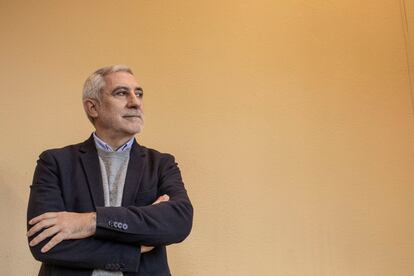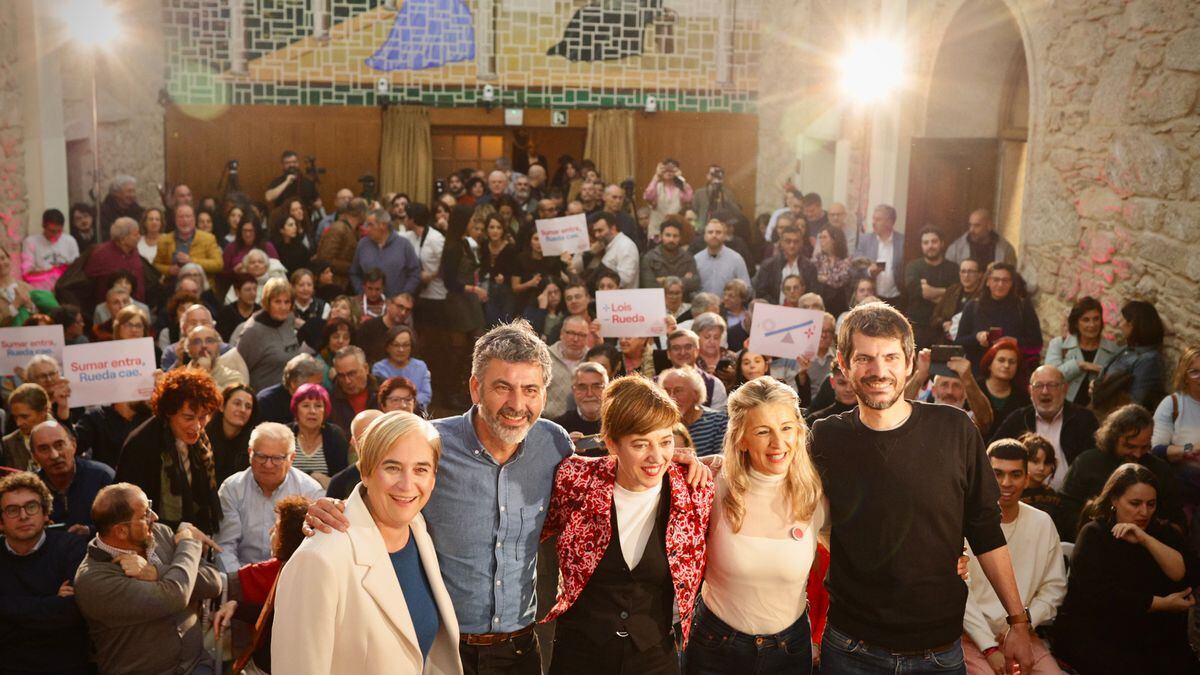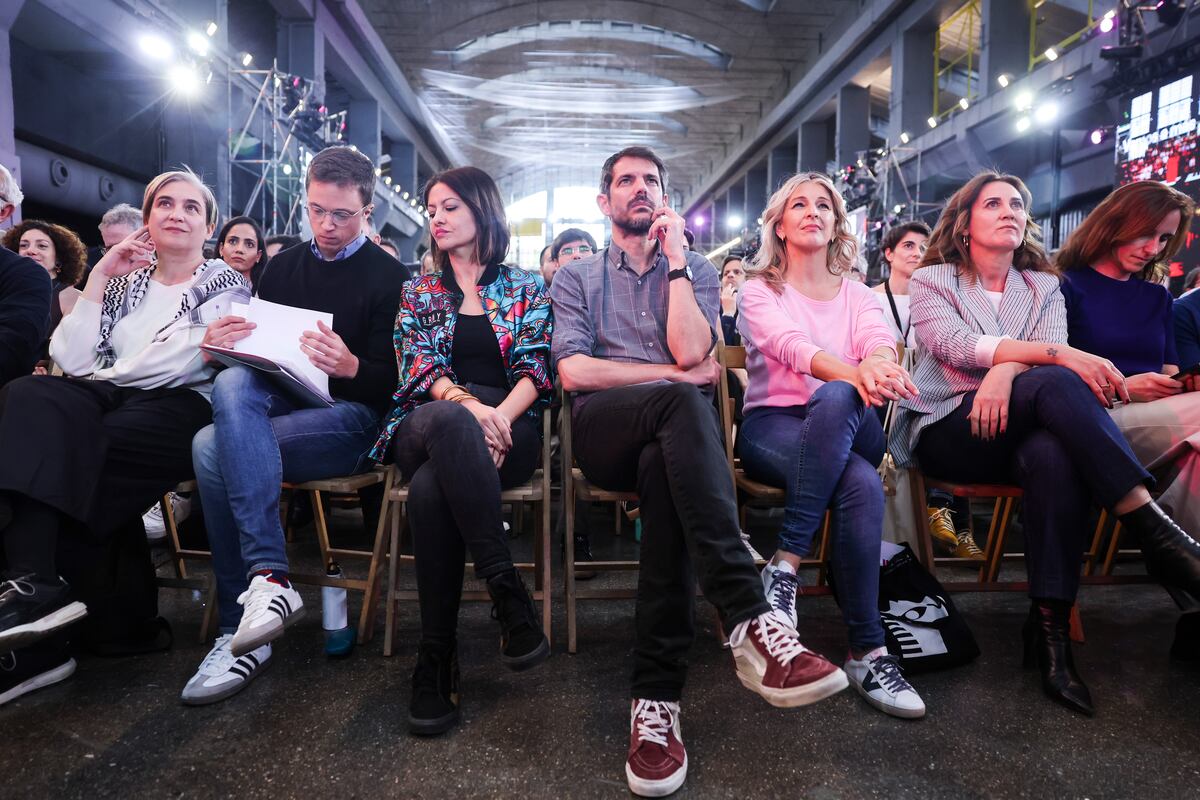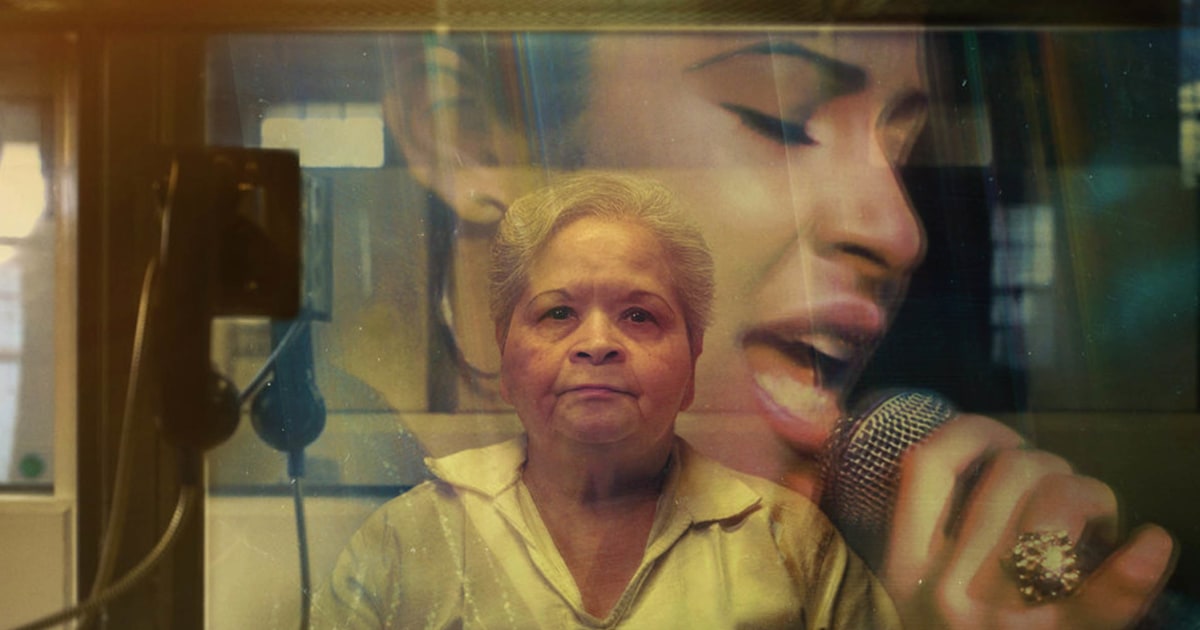Gaspar Llamazares, this Monday, in Oviedo.Manu Brabo
Gaspar Llamazares was born in Logroño 64 years ago, but he is more Asturian than Rioja. He studied medicine, but has always been more political than doctor. In December 2018, he resigned from his positions in Izquierda Unida, a formation of which he had been general coordinator, after facing Alberto Garzón and what he considered the "dissolution" of IU in Podemos. In April 2019, he was a candidate for the presidency with the Actúa platform, created together with Baltasar Garzón, but obtained just 30,000 votes in the eight constituencies in which he appeared. He has just published
Pandemonium, a pandemic and populism newspaper,
where he reflects with Gema González and Miguel Souto on what he considers a triple pandemic: viral, social and political.
Ask.
"Politics is a chronic disease that cannot be removed."
When was it detected?
Answer.
(Laughs)
I have had that disease of a political agitator since I was a kid.
We questioned the late Francoist way of teaching of some teacher and we supported other ways of teaching that already heralded the democratic period.
I remember that in an exchange in the United States, Franco fell ill and the host families, not seeing us very sorry for it, asked us if we considered Franco to be a communist.
They did not realize that they had the Communists inside the house.
Q.
What has been the happiest and the bitterest moment of your political career?
R.
The happiest was the mobilization against the war in Iraq.
For a sector of politics that has a tradition of being a minority, coinciding at that time with a mobilization that represents the great majority was the ideal.
Then the troops from Iraq withdrew and with the first Zapatero government we specified many measures that we spoke about in the opposition.
The bitterest moment, without a doubt, was the break with IU.
Q.
Do you think you would have been happier working as a doctor?
A.
No. I have had bitter moments, but I feel privileged.
I always wanted to represent my colleagues, I did it in the student movement and later within my party.
Management has never seemed ideal to me, but rather to represent a group, that your words move.
I have never had more aspiration than that.
Q.
Is the division a pathology that affects more to the left or does it just seem like it?
R.
It affects more to the left.
It is our chronic pathology.
Q.
Why?
R.
We are very purists, but life and politics always deny a part of the ideas.
We entered into constant cyclical crises, even before the Transition, during the time of the anti-Franco struggle.
Q.
Is there a political gap for Actúa, the platform you created after leaving IU?
Will he run for election again?
R.
I think the electoral space is very busy and with turbulent waters.
It is not easy to convey an alternative speech.
Actúa is a place to share ideas, to claim a serious left.
I do not see the electoral issue close after the result we had.
In Vox there is a lot of vote of anger, of indignation ... and that is retractable
Q.
Who do you identify with the most in Congress today?
R.
The right is in an irresponsible work of institutional degradation.
I identify myself with a deputy who represents leftist ideas in a moderate way, such as the Minister of Labor.
Q.
You have criticized Podemos, whom you called "left-wing populism", but Yolanda Díaz seems to you "a good candidate."
Don't you consider it from Podemos?
R.
From the moment they entered the Government and in contact with reality, that populist project entered into crisis.
In fact, whoever defends it as a populist project is outside the Government.
The main successes of that project have been in replicating the role of the traditional left.
It can be seen in each of the measures that could be adopted, although with less ambition, in Zapatero's time: the minimum wage, the reform of the labor market ... For example, the first limitation of subcontracting was in that epoch.
They advanced when they rectified the initial drift towards a traditional, more serious left and their image was upset when they took some swerve towards populism.
Q.
For example?
A.
There have been many.
These swings have occurred above all in the relationship between institutions.
You can have a substantive discrepancy on the Council of the Judicial Power, but you cannot treat the justice of coup plotters.
Another thing is that they are objectively very conservative and that the resistance to modify the election system to compensate for a corporate drift is logical.
Q.
Is it recordable?
Would you like to join Yolanda Díaz's “country project”?
R.
I would like that project to go ahead because we are risking the recomposition of our left.
We will support you to succeed.
Another thing is the place we can occupy.
I never abandoned politics, institutional politics abandoned me.
Q.
And if Yolanda Díaz called you, would you go back to politics?
R.
I don't think it's going to happen. She has a lot to clear before making these kinds of gestures. I don't have much interest right now, but I wouldn't turn it down either. She also hasn't said yes yet. If it is done as a controlled lure and in the populist drift, it may not be worth it, but if it is a fundamental bet for a recomposition of the social and political left, it is surely worth being there. In addition to the problem of purism in ideas, we have the problem that we are cyclothymic in expectations: we go from depression to euphoria. In times of euphoria there is a very healthy mobilization, but in times of depression we tear each other apart.What should be tried is that this synergy between the PSOE and what would be in the future United We Can work with progressive nationalisms from the political and electoral point of view. The best thing would be that this legislature ends with social and civil rights content and that it is repeatable: that the left adds and if possible, do it without too many bills and mortgages.
The third world and the poorest countries had to go before the third dose of the vaccine.
This latest wave has a lot to do with it
Q.
The European Commission considers nuclear energy as green.
Can nuclear be green?
A.
No. Such insecure energy cannot be green.
Neither does gas.
They may be energies that you have to transition with, but you can't cheat in a document.
It is one thing to do the pragmatism of having to reconcile some energies with others and it is another thing to make a virtue of necessity.
Nuclear energy leaves polluting waste for centuries and has the insecurity component that we have seen in Chernobyl and Fukushima.
To pose it as green energy is to be untrue.
I hope that the European Parliament will turn it around.
P.
"The left has lost the opportunity to politicize the pandemic."
Please develop.
R.
The left and democracy. This pandemic has caught us in the populist period of digital and consumer politics, and the democratic politics of the institutions have remained in the background, surely because it is still ashamed, because it has not recovered from the impact of serious cases of corruption. and the distrust of citizens in the financial crisis. It seemed that everything was done in the pandemic because the experts said so and it is not true. It was done with his advice, but they were political decisions. You had to mediate between priorities. We have seen it throughout the pandemic and in a particular way now, where we see a greater tension represented in Pedro Sánchez's statement on the balance between public health, mental health and the economy.Politics has been put behind and has not made an account of the pandemic. The first was almost a part of war, then it was co-governance, and now the compatibility between those three priorities, but that does not make a complete story. The extreme right-wing denial has made a story of conspiracy and an attempt at social control as the first maxim of democratic governments, and there is even another less strident and well-known story that is that of technical dogmatism that has come to say that everything could be done before and better and that the virus could be eradicated, when anyone who knows something about this has to recognize that when a virus is transmitted asymptomatically, it has mutations and variants, it is not eradicable, but controllable. We are now in that transition phase between the pandemic and the seasonal epidemic.The key is when we consider that the trace of serious illness and mortality is bearable in relation to other endemics.
Q.
You have criticized what you call "vaccine nationalism." Should the third world go before the third dose?
A.
Yes. When there is 80% of the population vaccinated and perhaps before, it would have been time to comply with the Covax program that we do not comply with even in a quarter, and give vaccines.
Nobody talks about group immunity anymore because it is not possible with a virus of these characteristics, but about functional control.
In other words, when serious illnesses and deaths are acceptable ethically and for the health system.
Those are the issues that have been on the table for several weeks and a long time ago that could have been foreseen in the equitable distribution of vaccines.
In fact, this latest wave has a lot to do with the low level of immunity and vaccination in the rest of the world and in impoverished countries.
Q.
Why do you think that the denialist discourse has had less influence in Spain than in other countries?
R.
I think this apparent contradiction between a buoyant extreme right and a downward denialist discourse has to do with the fact that, on the one hand, the Spanish extreme right has not been explicit, it has oscillated between the denialist discourse and that of asking for everything to be closed. and before, and on the other hand, in Spanish society there has been much more solidarity and responsibility than that represented by the extreme right. That is a positive message for the rest of democratic society. There is a part of Spanish society that agrees with the ideas of the extreme right, but there is a good part of the extreme right on occasion, under circumstances. Much vote of anger, indignation and uncertainty and that is reconducible. Populism began as a kind of dream of revolt in the face of the crisis of the political system and has ended up being a reactionary nightmare.
Q.
Do you mean that populism started on the left?
R.
Exactly, when they said that you could storm the skies.
An idea to channel outrage politically.
Q.
In your book, you explain that this is not one pandemic but several at the same time.
Is there still a chance to get better?
R.
There is always the possibility of learning.
I believe that the ties of empathy and solidarity that the pandemic and the case of La Palma have produced will remain, as the greatest appreciation of the collective, the public and specifically the Health, which has been the first trench against the virus.



/cloudfront-eu-central-1.images.arcpublishing.com/prisa/LM5S5QYHYJDZ2DY5PMOYM3DWMU.jpg)
/cloudfront-eu-central-1.images.arcpublishing.com/prisa/SCDHZJIFAM5SVAG7XB4KK3N52U.jpg)

/cloudfront-eu-central-1.images.arcpublishing.com/prisa/GANAHD5ZAX4ZL7KEBUEKZVV4DU.jpg)
/cloudfront-eu-central-1.images.arcpublishing.com/prisa/S27CNMKITIAPNNGVWEGRZ6IMVI.jpg)



/cloudfront-eu-central-1.images.arcpublishing.com/prisa/KMEYMJKESBAZBE4MRBAM4TGHIQ.jpg)



